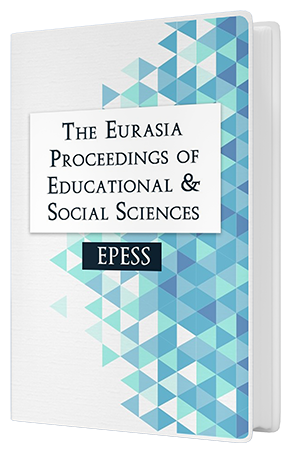An Experimental Study on the Use of Mobile Learning in the Turkish Republic Revolution History and Kemalism: Adıyaman Provinve Example
DOI:
https://doi.org/10.55549/epess.995342Keywords:
Turkish Republic Revolution History and Kemalism, mobile learning, mobile educationAbstract
The usage area of mobile learning in teaching and learning activities is increasing day by day. In this research, 8th Grade Turkish Republic The effect of mobile learning on the acquisition of the achievements of the units "National Awakening, Steps Towards Independence and A National Epic: Either Either Freedom or Death" in the Revolution History and Kemalism was examined. A quasi-experimental design with pretest-posttest control group was used in the research. The participants of the study consisted of 56 students, 28 of them in the experimental group and 28 of them in the control group, studying at a state secondary school in a province located in the Southeastern Anatolia Region. Achievement test and attitude scale were applied as data collection tools. Data Analysis Confirmatory factor analysis, dependent sample t-test and independent sample t-test were calculated using SPSS 21.00 program. According to the results of the research, a significant difference was found between the experimental and control groups in terms of achievement scores in favor of the experimental group. In addition, no significant difference was found in the attitudes of students towards mobile assisted learning in both groups. Based on the results of the research, the some suggestions have been developed to increase its use in the Revolution History and Kemalism.Downloads
Published
Issue
Section
License
Copyright (c) 2021 The Eurasia Proceedings of Educational and Social Sciences

This work is licensed under a Creative Commons Attribution-NonCommercial-ShareAlike 4.0 International License.
The articles may be used for research, teaching, and private study purposes. Any substantial or systematic reproduction, redistribution, reselling, loan, sub-licensing, systematic supply, or distribution in any form to anyone is expressly forbidden. Authors alone are responsible for the contents of their articles. The journal owns the copyright of the articles. The publisher shall not be liable for any loss, actions, claims, proceedings, demand, or costs or damages whatsoever or howsoever caused arising directly or indirectly in connection with or arising out of the use of the research material. All authors are requested to disclose any actual or potential conflict of interest including any financial, personal or other relationships with other people or organizations regarding the submitted work.




